SUSTAINABLE PSYCHOLOGY
The psychology of sustainability and sustainable development (Di Fabio, 2017a, 2017b; Di Fabio &
Rosen, 2018; Di Fabio & Tsuda, 2018) (a) focuses
on well-being; (b) at levels of interaction including those of
individuals, groups, organizations, and systems; and (c) is concerned
with processes that are robust, consistent, and enduring. In contrast to
traditional approaches that focus on avoidance (exploitation, depletion,
irreversible alteration), the PSSD approach focuses on promotion
(enrichment, growth, and flexible change). In this way,
sustainable psychology may have (surprisingly) less to do with
what is studied and more to do with the attitudes and
approaches to studying it. In the context of the Bikos RVT, you will
likely recognize overlaps with vocational (e.g., “Is it
reasonable to frame maskmaking during the pandemic as calling?”) and
global (e.g., “How does geopolitical context influence
attitudes toware mask-wearing?”) psychology.
As the U.S. was coming to terms with the seriousness of the pandemic,
we launched a pair of studies that focus on facemasks. Both were 12 to
24 wave, longitudinal studies.
#MaskMadness
The unique focus of #MaskMadness is about wearing facemasks.
Specifically, we are assessing reaction to seeing others’ in facemasks
and the experiences of wearing the facemasks in public. Meta-data that
is collected in Qualtrics has allowed us to collect contextual
information (e.g., voting trends, weekly rates of positive COVID tests
and COVID-related deaths) to see how they interact with individual
factors (e.g., job loss) to predict health and safety practices around
COVID (e.g., social distancing, hand-washing, wearing facemasks) and
well-being.
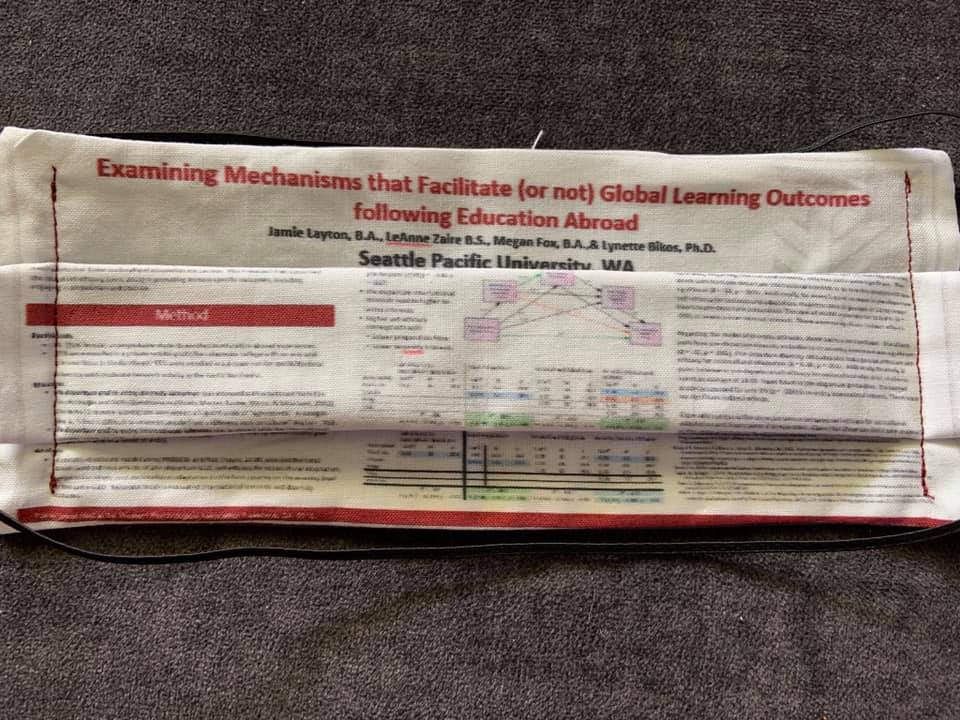
Image of a “postermask” that uses a mini-version of a conference poster printed on cotton fabric.

Image of the backside “postermask” that features the SPU logo.
Maskmaker MaskMaker Make me a Mask
“Maskmaker” (yes, a play on “Matchmaker Matchmaker” from Fiddler on the Roof) augmented the #MaskMadness study with its focus on those sewing cloth facemasks. Maskmakers were asked to report their weekly productivity as well as reflect on why they engaged in maskmaking and how it was going.
The I/O students in a summer qualitative research methods class analyzed the data and found that it fit well to the work-as-calling theory (Duffy et al., 2018). We are presently analyzing quantitative data to see if it will map similarly.
Image of a Maskmaker’s sewing table with masks-in-progress.
Recent Pubs
- Gibbs, R., Güneri, O. Y., Pankau, T., & Bikos, L. H. (2020). Birds of a Feather Fare Less Well Together: Modeling Predictors of International Student Adaptation. Sustainability, 12(6), 2317. https://doi.org/10.3390/su12062317 Available at: https://www.mdpi.com/2071-1050/12/6/2317
- Coyer, C., Gebregiorgis, D., Patton, K., Gheleva, D., & Bikos, L. (2019). Cultivating global learning locally through community-based experiential education. Journal of Experiential Education, 42(2), 155-170. doi: 10.1177/1053825918824615 Retrieved from: https://journals.sagepub.com/doi/full/10.1177/1053825918824615
Recent Presentations
At WPA 2022 we contributed three presentations to the symposium title, “The On-and-Off-Again of Facemasks in the COVID-19 Pandemic.” The first two presentations focused on maskmaking, analyzing it against the work-as-calling theory. The second presentation examined the effects of facemask-wearing stigma and geopolitical context on well-being
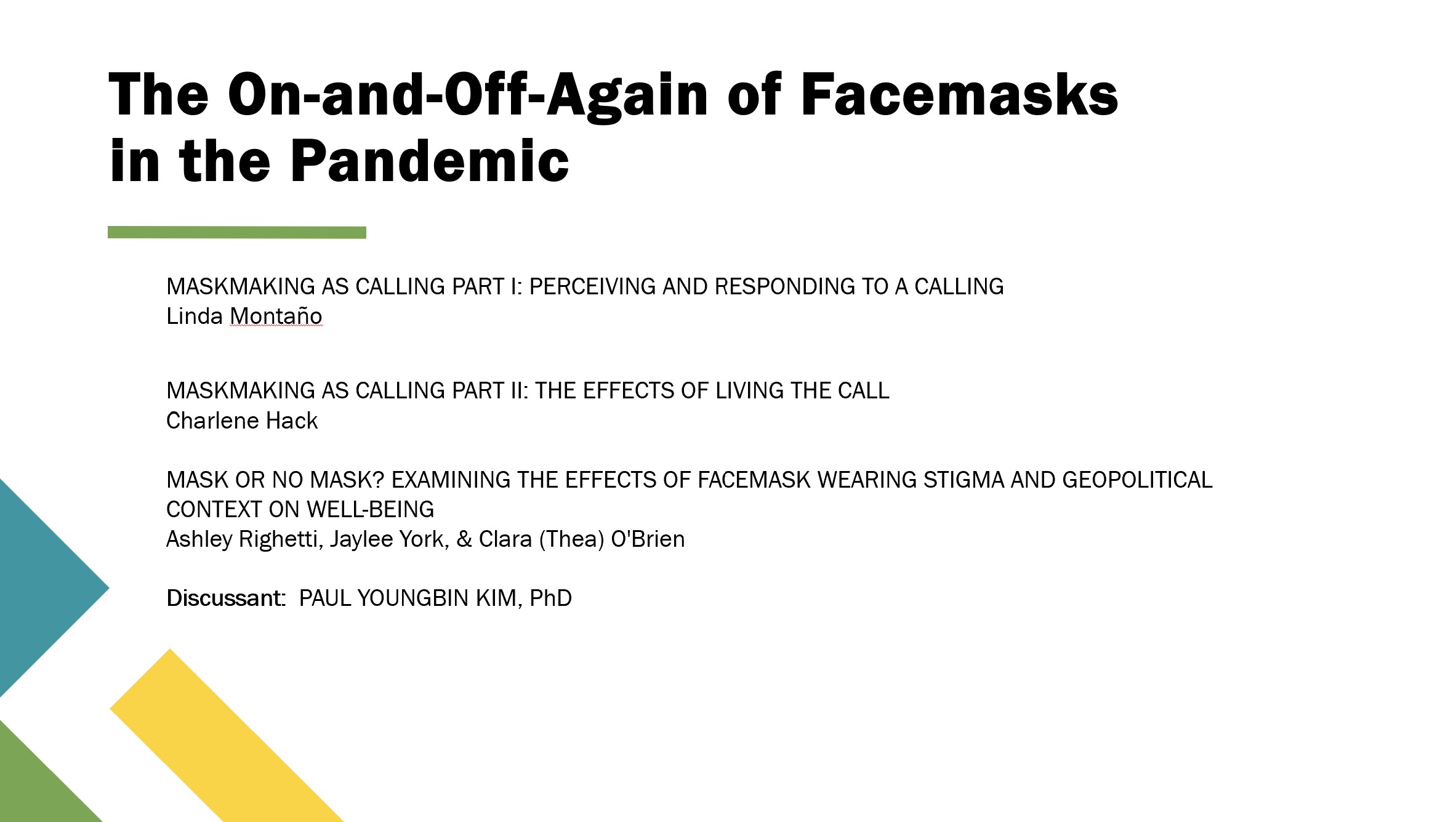
Image of the title slide for a symposium presentation presenting the Maskmaking as Calling results.
At WPA 2021(Virtual) we provided a symposium presentation (only 17 minutes) summarizing the qualitative data from the MaskMaker study. It fit well to the work-as-calling theory.
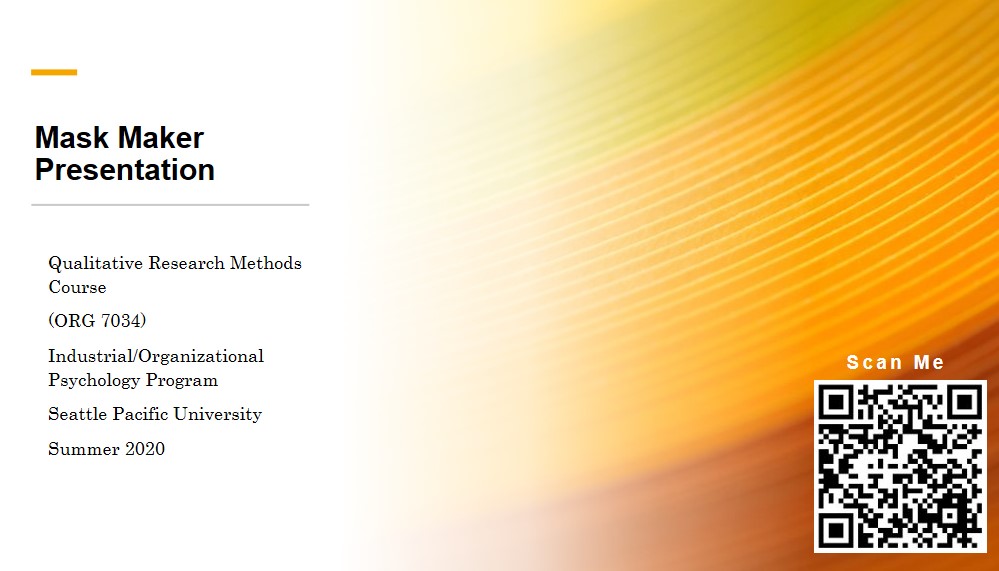
Image of the title slide for a symposium presentation presenting the Maskmaking as Calling results.
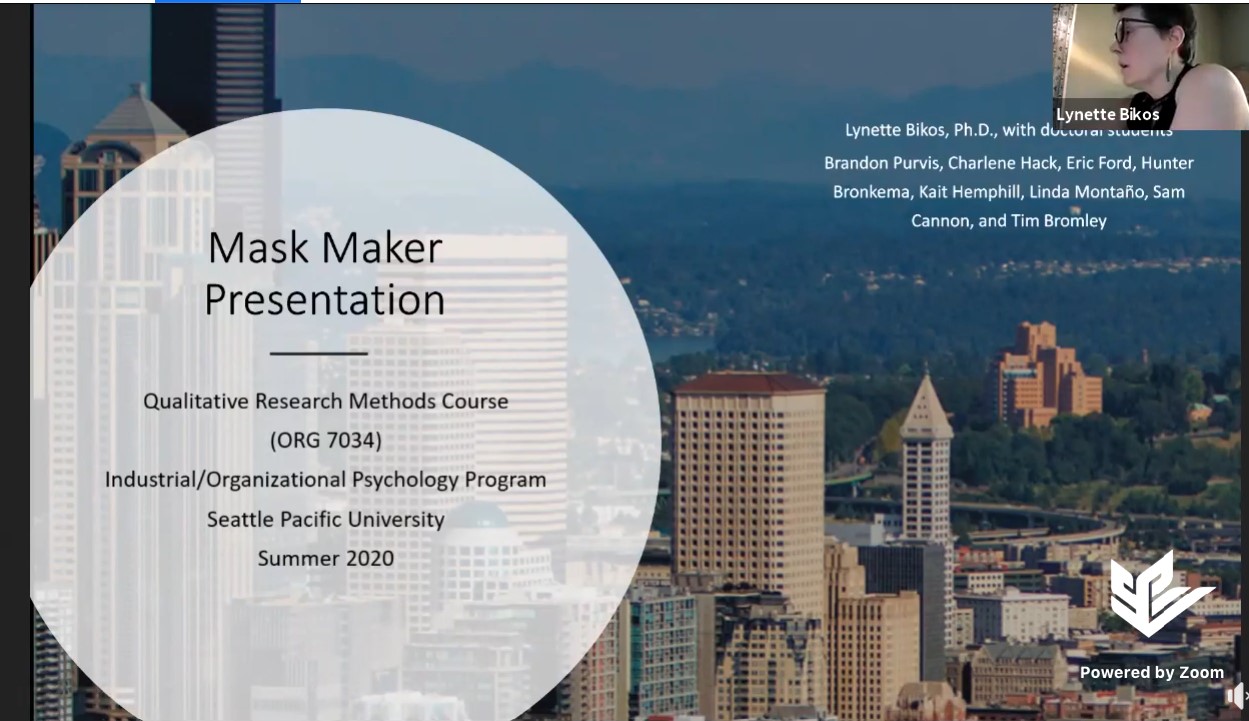
Image of the title slide for the livestreaming presentation for the Maskmaker qualitative results.
Check out our livestreaming presentation from FaceBook where we
presented qualitative,
results from the Maskmaker Study.
Also available for viewing is our WPA2020
symposium presentation from the Birds of a Feather (Gibbs et al., 2020) study. This study
was based on Renee Gibbs(’11) doctoral dissertation.
Recent Posters
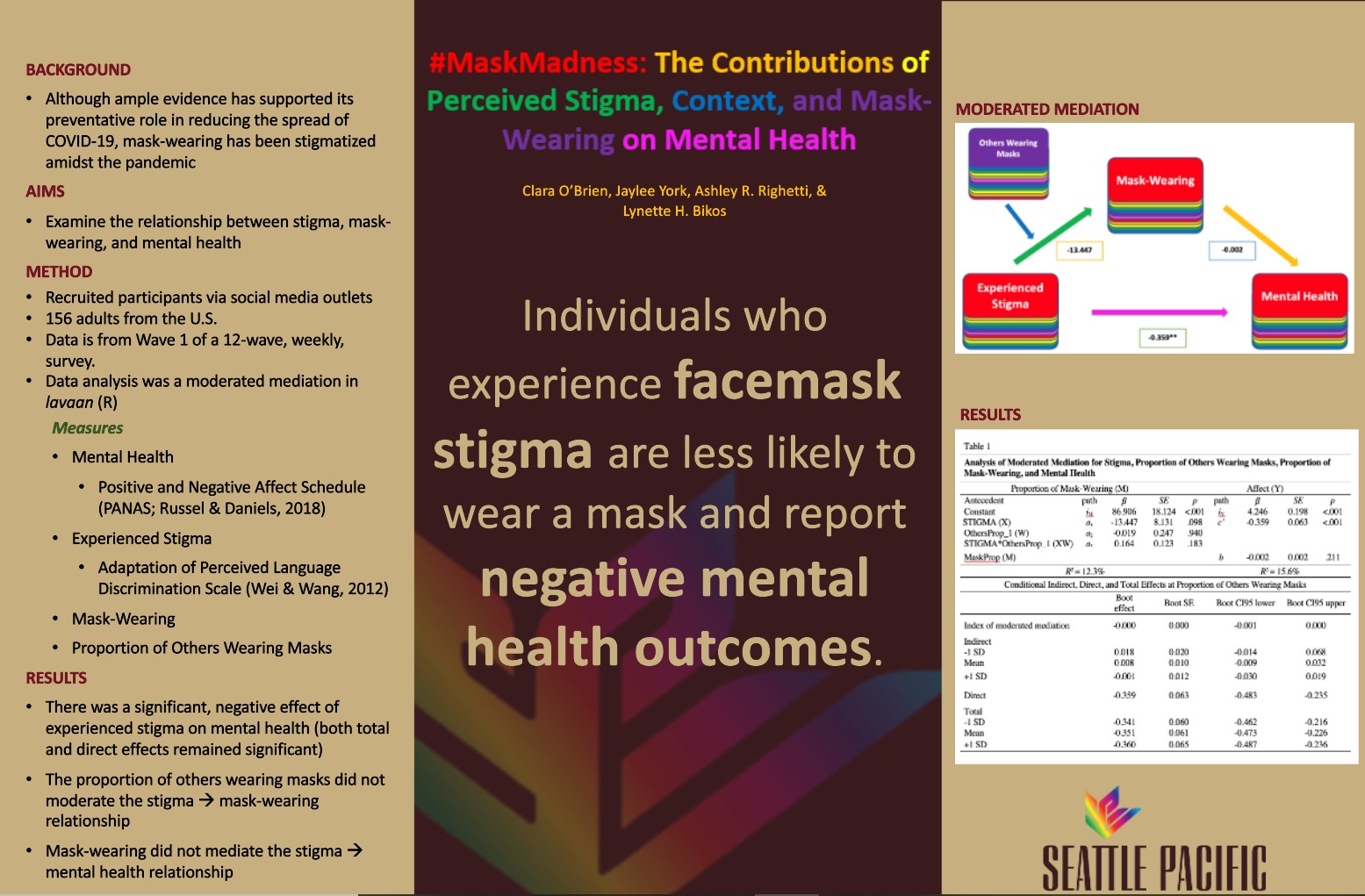
Image of the a poster evaluating mental health outcomes as a function of maskwearing and perceptions of facemask stigma.
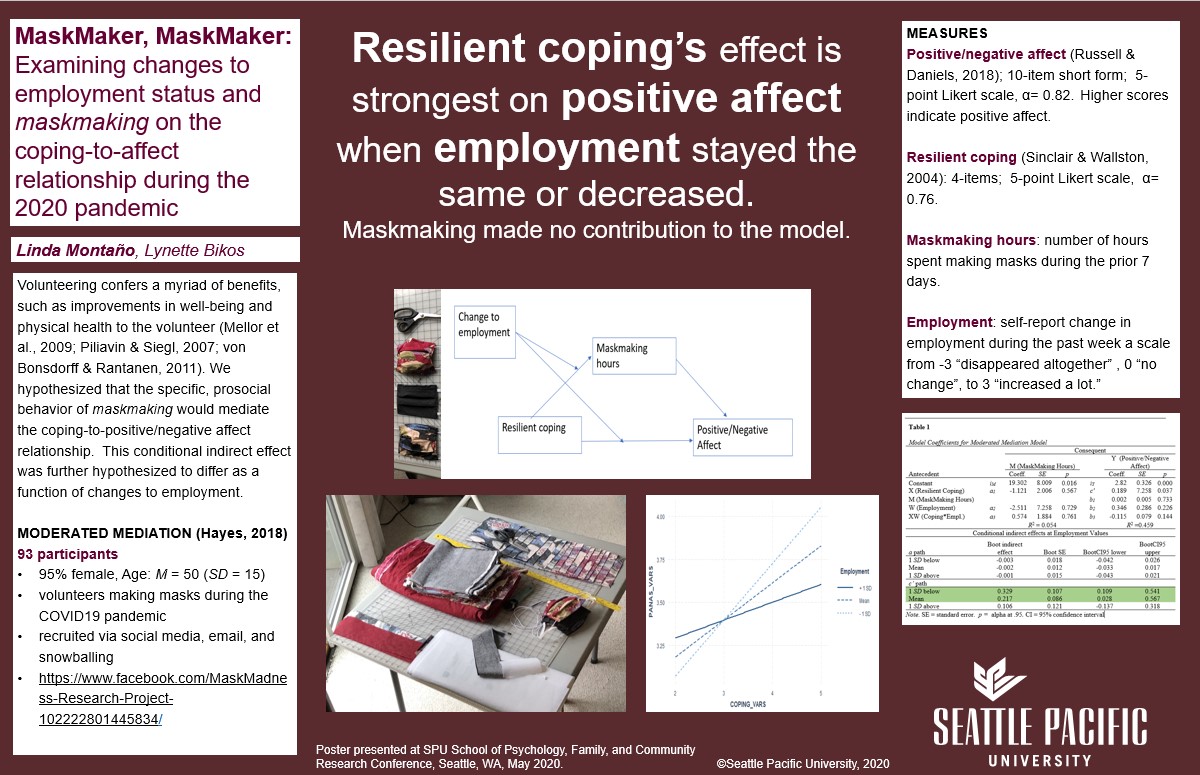
Image of the a poster evaluating resilience during the pandemic as a function of changes to employment status and the prosocial behavior of maskmaking.